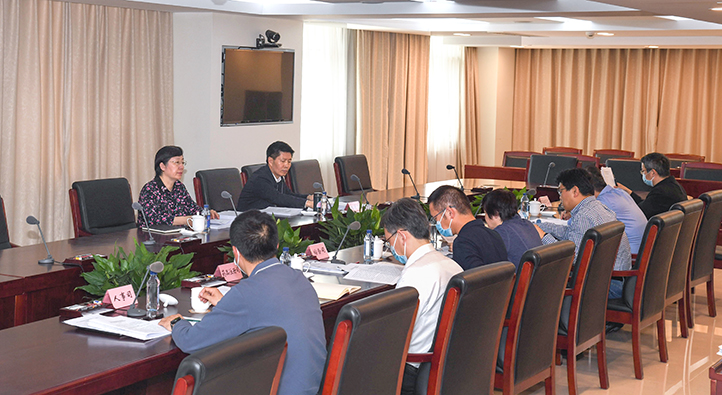NMPA holds meeting to review vaccine regulatory quality management system

The National Medical Products Administration (NMPA) held a meeting on the vaccine regulatory quality management system on April 21 to summarize the construction and operation of the system in 2021, evaluate its appropriateness, effectiveness and adequacy, and make arrangements for the key tasks of its construction in the next stage.
NMPA Commissioner Jiao Hong delivered a speech at the meeting. NMPA Deputy Commissioner Chen Shifei presided over the meeting.
Construction of the vaccine regulatory quality management system is a basic requirement for the World Health Organization (WHO)'s National Regulatory Authority (NRA) assessment of vaccines. It is also an effective way to continuously improve the national vaccine regulatory capacity and level.
At the meeting, the Office of Vaccine Regulatory Quality Management System reported on the overall situation of the construction and operation of the vaccine regulatory quality management system in 2021. Five major departments responsible for the system's construction, the Department of Comprehensive Affairs, Planning, and Finance Affairs, the Department of Policies and Regulations, the Department of Drug Registration, the Department of Drug Regulation, and the Department of Human Resources, reported on how the system operated at their own departments.
Chen commented on the system's construction and operation on behalf of the administrators.
In 2021, the NMPA actively promoted the system's construction and continued to revise and improve the Quality Management Manual. It also further updated the procedural documents related to vaccine regulation, organized internal audit, management review and customer satisfaction survey on the system, identified risk factors in the operation of the system, and continuously optimized the system. All tasks met the requirements of quality objectives.
The meeting participants fully affirmed the achievements in the construction of the system. Jiao said that in the past year, construction of the vaccine regulatory quality management system followed up on the newly formulated and revised laws and regulations. In-depth analysis was conducted on the process of vaccine regulation, and significance was attached to the interconnection, orderly connection and compatible expansion of various subsystems. The planning conformed to regulatory realities, enriched scientific management concepts with new contents and achievements, and continuously improved vaccine regulatory capacity. The system's construction is an important measure to strengthen the construction of drug regulatory capacity, she noted.
Jiao put forward requirements for the next step. First, it is necessary to continue to adhere to a problem-oriented approach, take international standards as a benchmark, carefully analyze existing issues and take targeted measures in order to accelerate the maturity of the system. Second, efforts should be made to push forward the connection of the system, take the regulatory working process as the connection and standardize the connection of working procedures in order to ensure smooth operation of the system. Third, the NMPA should strengthen supervision, continuously improve the system, promote the deep integration of system operation and regulatory realities, in order to ensure the combination of quality management and administrative management and comprehensively improve the effectiveness of regulations.
Preparations for the WHO's official NRA assessment in July this year have entered the final sprint. Jiao stressed that all departments should promote relevant work with a high sense of mission and responsibility to comprehensively demonstrate China's vaccine regulatory capacity and level and ensure successful passing of the assessment. The experiences gained in the construction and operation of the vaccine regulatory quality management system should be gradually promoted to drug regulation, and the concepts of quality management should be implemented in all links of drug regulation, so as to comprehensively enhance the construction of the drug regulatory quality management system to better ensure drug safety.
